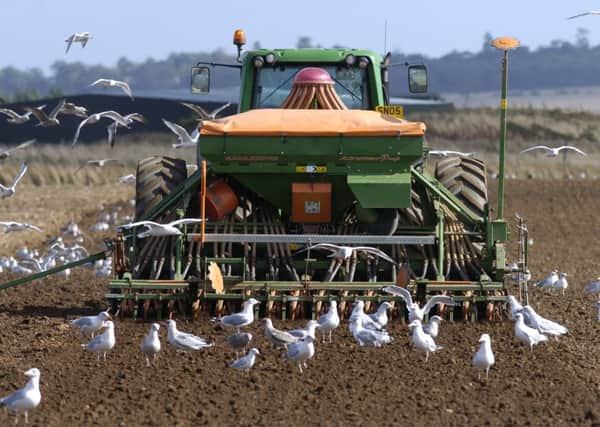Like an exhausted horse, land must be given a rest


Then, rather than letting the beast rest from its exhausted state, he tries to beat it back on to its feet with much shouting and waving of arms.
To our western, animal-loving eyes it smacks of unforgivable cruelty and hard-heartedness. And, of course, that is true. But if you dig into the scenario a bit it’s not difficult to realise that there’s a lot more going on than gratuitous cruelty.
Advertisement
Hide AdAdvertisement
Hide AdThe man has probably brought the horse up from a youngster and has cared for it the best he can. But influences outside his own control have forced him into making the poor animal do more than it is capable of. The beast’s loyalty has led it to try to do as much as it can – but eventually it can do no more and has to give up.
It’s a sight you’d only expect to see in developing countries these days – for rather than being beasts of burden in this country, horses and their kin are now generally animals of leisure and the leisured. But the well-known and, to this day, still commonly used phrase, flogging a dead horse, gives testament to the fact that similar scenarios happened here, too.
But while I wasn’t intending to write a piece about horses and the horsey world, the image of the poor struggling donkey sprang to mind and seemed to resonate with a report released last week.
Nothing to do with animal cruelty – but the imagery of pushing things to breaking point and beyond was very much brought to my mind last week after reading some of the report published by a House of Commons select committee which looked at the health of the country’s soils.
For, while the report threw up the scary vision that some of the best land in the country could become so degraded that it could be unprofitable to work within a generation, it would be fair to say that no farmer ever set out with that sort of intention in their mind.
The report concluded that, like the poor donkey, the country’s land is being asked to do too much and is being pushed either too hard or in the wrong way.
But with farm-gate prices at rock bottom there’s no slack in the system to allow the caring attitude most farmers would like to have for their primary – and often most expensive – asset.
So the financial imperative sees bigger machinery, often working in wetter conditions, push the land and its soils harder and harder. And with crop rotations and grass breaks now often viewed as an expensive luxury rather than a practical management tool, each year the land is asked to do a bit more, to carry more of the burden without being given time to rest or recover.
Advertisement
Hide AdAdvertisement
Hide AdLast week’s report suggested that, at a policy level, there simply wasn’t enough being done to keep soils healthy – and it was claimed that there were few regulatory controls and a minimalistic inspection regime which had excessive loopholes, along with little or no monitoring.
The EU’s soil framework directive – a sister act to the water framework directive, which brought us the joys of the nitrate vulnerable zone (NVZ) and diffuse pollution regulations – was quietly dropped by the commission back in 2014 in what looked very much like a tacit admission that such an approach was doomed to failure.
This new report, however, while pointing out the flaws seemed to see the answer in tighter policy regulation – and, with it, more inspections, fines and a clampdown on the existing rules.
But, casting our minds back to the clip of the donkey, if these plans to encourage farmers to manage their soils sustainably consist solely of a more zealous and punitive approach which is all stick and no carrot, it too is likely to result in a dead horse being flogged.
